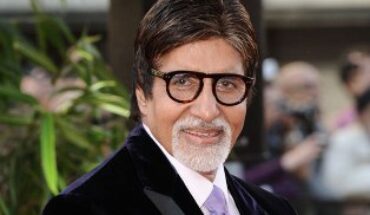Chhavi Bhatia
New Delhi—Winters are any gastronome’s delight, calories and widening girth notwithstanding. We eat hot, spicy, rich, sweet food unmindful as cold winds and dipping mercury absolve us of any guilt. Partial blame of this unrestrained excess goes to chefs too who sharpen their knives, bringing out the best to savour the biting cold. Chef Talat Mehmood Khan at Le Meridien, Gurgaon is in the line of fire for doing the same: bringing a decadently flavourful pop-up, Salaam-e-Dilli, to announce the arrival of the season. He brings the aromas, flavours and taste from gullies of Purani Dilli to fine dine sans its chaos, hustle bustle and traffic.

“The idea of going to Old Delhi during peak winters to enjoy the widespread Mughlai cuisine, so that the food doesn’t make one sweat but warm, is what inspired us to have an outdoor restaurant,” he says while giving a lowdown on the menu spun with three decades of chef Khan’s expertise in Mughlai cuisine and a childhood spent watching his grandmother cook. The menu has Mughlai regulars: kebabs, biryani and ghost nihari which has chef Khan’s “special touch”. Vegetarians can relish some exquisite authentic dishes Malai Paneer ki Seekh–velvety paneer reshmi seekh kebab marinated in sour cream infused with saffron and flavored with nutmeg, star anise and roasted in the oven in bamboo skewers. And all this is “authentic”, bringing us to the big mystery on what constitutes ‘authentic Mughlai food’. “Mughlai cuisine originated in northern India–Uttar Pradesh and Delhi as well as among muhajir expats in Pakistan. The cuisine can also be found in certain regions of Bhopal and Hyderabad. With the variety of flavorful sauces and butter-based curries, Mughlai fare was most likely time-consuming and labor-intensive to prepare—almost as if it was meant to make people desire more food because it can be so decadent,” he says.

Chef Khan further shares that Mughlai dishes are usually described as mild to medium-hot cream and nut-based gravies, rice dishes with a lot of nuts and dried fruits, and rich creamy desserts with spices like saffron, cinnamon, cardamom, cloves, and nutmeg. There are staples too but most of them, he rues are corrupt imitations of the original recipes. “Nihari and kebabs are a routine affair but the authenticity of these classic dishes is lost. People have created their own recipes and spice blends because of which the dishes do not taste as they were originally,” he says, adding that pork and beef were originally not used in their gastronomy; instead, goat, fowls, sheep, and venison as well as vegetarian-based dishes were heavily consumed.
The pop-up also has Ghosht and Subz Biryani cooked in dum for hours and chef’s special Shami Kebab with a secret blend to satiate your palate. The menu also features a choice of traditional dessert Zaffrani Kheer, slow cooked for hours with a touch of saffron and an amalgamation of flavors like coconut and cardamom.
While chef Khan does not believe in tweaking age-old recipes to suit his sensibilities, he let his mother and grandmother influence who he is in the kitchen. “When it comes to authentic Mughlai food, copper utensils play a crucial part in enhancing the flavors. Copper utensils with silver lining were used by my grandma, which imparted tastes to the original recipe. She also instructed me to never use a pressure cooker and instead to let the food cook slowly and naturally in its own juices,” he states.
On till March 31st 6.30 PM to 10.30 PM





